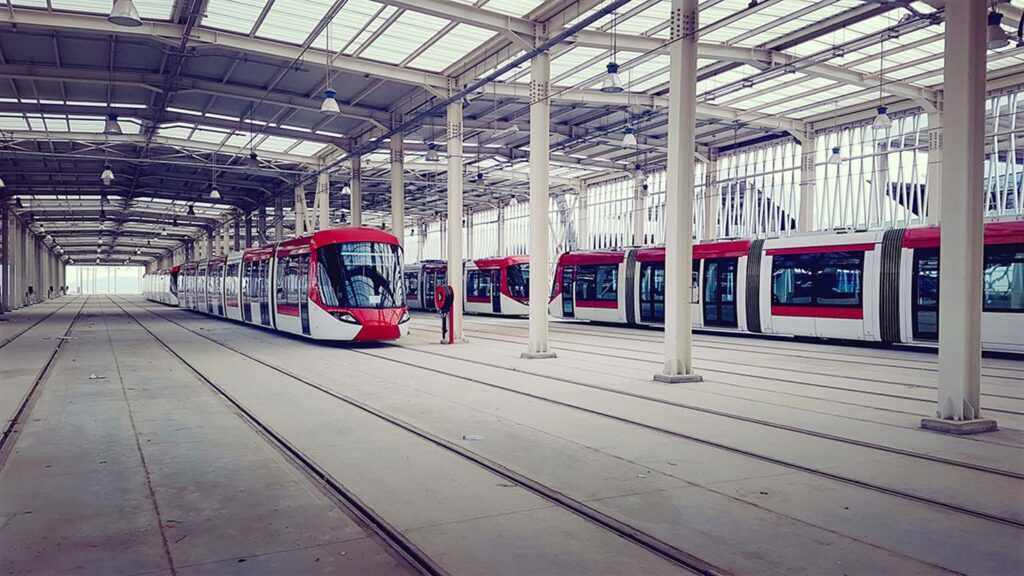Alstom has spoken about its use of additive manufacturing processes, which it says has helped its customer Sétif Tramways reduce a lead time for a spare part from 45 days down to 48 hours.
Sétif discovered that tram headlights were being broken by the accumulation of water and stones entering though small gaps as the trams ran their daily routes. As a result, Alstom was approached with an urgent request for spare parts to plug the holes and prevent any further damage to the trams.
Via its dedicated internal 3D printing hub, Alstom deployed its Stratasys F370 3D Printer to create rubber drainage plus to seal the holes in the trams’ headlights. A dozen were designed, produced and delivered within just 48 hours, fixing the design oversight.
“We avoided the minimum three-week production lead-time typically required of traditional manufacturing methods and ensured the tram network’s operations were minimised,” said Aurélien Fussel, additive manufacturing programme manager at Alstom.
“For our transportation customers like Sétif, every minute of lead time within a network means lost revenue, so every minute we can win back when solving maintenance issues reduces that loss.”
Fussel added that by having in-house production capability to generate on demand parts means Alstom can bypass its traditional supply chain and respond quickly and cost-effectively with a bespoke solution to fit the client’s needs.
For this particular project there was also a substantial cost saving – with additive manufacturing a less labour-intensive process than moulding or casting methods – saving Sétif an 80% reduction in fixed cost, or approximately €6,000.
“As a longstanding customer of ours, Alstom is a shining example for these companies having pioneered the use of additive manufacturing for spare part production for many years,” said Yann Rageul, head of manufacturing business unit for EMEA, Stratasys.
“Not only to optimise its own efficiencies, but to also deliver innovative solutions for customers that simply would be unviable with traditional manufacturing.”
Alstom helped set-up Algeria’s Sétif Tramway project in 2018, supplying 26 Citadis trams for the first public tramway in the city of Sétif. Alstom’s operations in the country span more than 60 years, with the company having also supplied integrated tramway systems to the cities of Algiers, Oran and Constantine.






